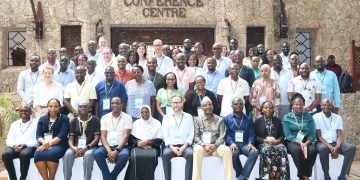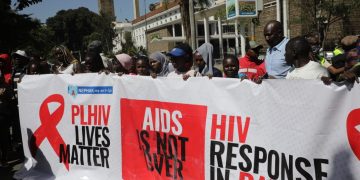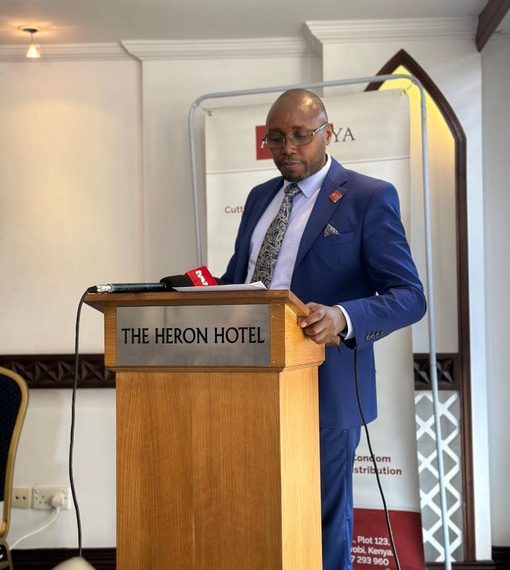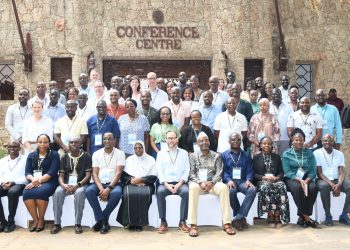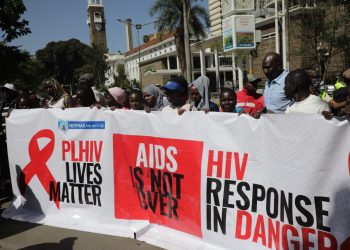Civil Society Organizations (CSOs) in Kenya are sounding the alarm over the government’s recent allocation of Shs. 6.7 billion for Mpox response, particularly highlighting the alarming omission of funds for vaccine procurement.
Speaking at a press conference AIDS Healthcare Foundation (AHF) Kenya, the Kenya Treatment Access Movement (KETAM), North Star Alliance, Health NGOs’ Network (HENNET), the Pandemic Action Network (PAN), and the National Empowerment Network of People Living with HIV/AIDS in Kenya (NEPHAK) highlighted the alarming omission of funds for vaccine procurement.
“On Sunday, the government announced a prioritization plan designating Shs. 800 million for temporary isolation spaces and Shs. 91 million for healthcare worker training, with the remaining funds allocated to efforts such as screening, procurement of PPEs, and community-based surveillance. Notably, no provision was made for vaccine procurement.”
According to Dr. Samuel Kinyanjui, Country Program Director at AHF Kenya, Kenya risks a resurgence of Mpox cases similar to the COVID-19 crisis cautioning that M-Pox is a highly contagious disease with a death-per-infection ratio of about 3.33percent.
“For a disease as contagious as Mpox, the absence of a vaccination strategy is a critical gap. Today’s five reported cases could spiral into thousands if we don’t act swiftly.”, just like one COVID case led to more than 300,000 infections and nearly 6,000 deaths. We must act now before it’s too late,” Dr Kinyanjui said.
The CSOs also urge the World Health Organization (WHO) to expedite the approval of alternative Mpox vaccines to increase affordability and accessibility. Currently, the only available vaccine, MVA-BN, costs KES 12,900 per dose, which is prohibitively expensive for many Kenyans.
“We need to ensure that vaccines are not just available, but also affordable for all,” Dr. Kinyanjui stated adding that there is an urgent need to address these high costs through technology and knowledge transfers, including patent waivers, to enable regional vaccine production.”
James Kamau from the Kenya Treatment Access Movement (KETAM) called for dedicated funding for disaster management, stressing that the absence of a vaccine could leave the country vulnerable. “The National Treasury’s Disaster Management Fund remains unoperationalized. We cannot afford to overlook pandemic preparedness in our health strategies,” he stated.
Kamau said that failure to procure vaccines not only poses a risk to public health but also raises concerns about the government’s accountability in managing response funds.
“We need transparency to avoid the mistakes of the past. We cannot allow a situation where Mpox billionaires emerge from this crisis.”
Kamau’s comments come as the Democratic Republic of Congo (DRC) reports over 21,000 cases and more than 700 deaths from Mpox. Particularly alarming, in just the past month, more than 100 laboratory-confirmed cases of the new Clade 1b variant have emerged in countries neighboring the DRC—nations that had not previously reported Mpox. This development raises serious concerns about the potential for the virus to spread even further.
Faith Ndungu, Advocacy and Communication Manager of the Health NGOs’ Network (HENNET) emphasized the importance of simplified information and communication to pass to every citizen for collective action.
“It is important for us to acknowledge the role of collective action,” Faith said adding that “As civil society and communities, we are crucial in prevention, referrals, and sensitization, and we urge the Ministry of Health to empower us in these efforts.”
She also highlighted the readiness of their nationwide network of organizations to collaborate with the government in addressing the Mpox outbreak.
National Empowerment Network of People Living with HIV In Kenya (NEPHAK), Chairperson Nelson Otwoma urged the government to prioritize community awareness and vaccine access, particularly for vulnerable populations such as people living with HIV.
“Mpox poses a serious risk to our communities, especially to children living with HIV. We must enhance community sensitization for those most at risk. By educating communities on Mpox, we can mitigate fear, anxiety, and misinformation.”
The CSOs stressed that the absence of vaccine procurement commitment in Kenya’s Mpox response plan not only jeopardizes public health but also highlights a need for immediate corrective action to ensure the safety and well-being of vulnerable populations saying that without a robust vaccination strategy, the country risks a public health crisis that could have far-reaching consequences.



